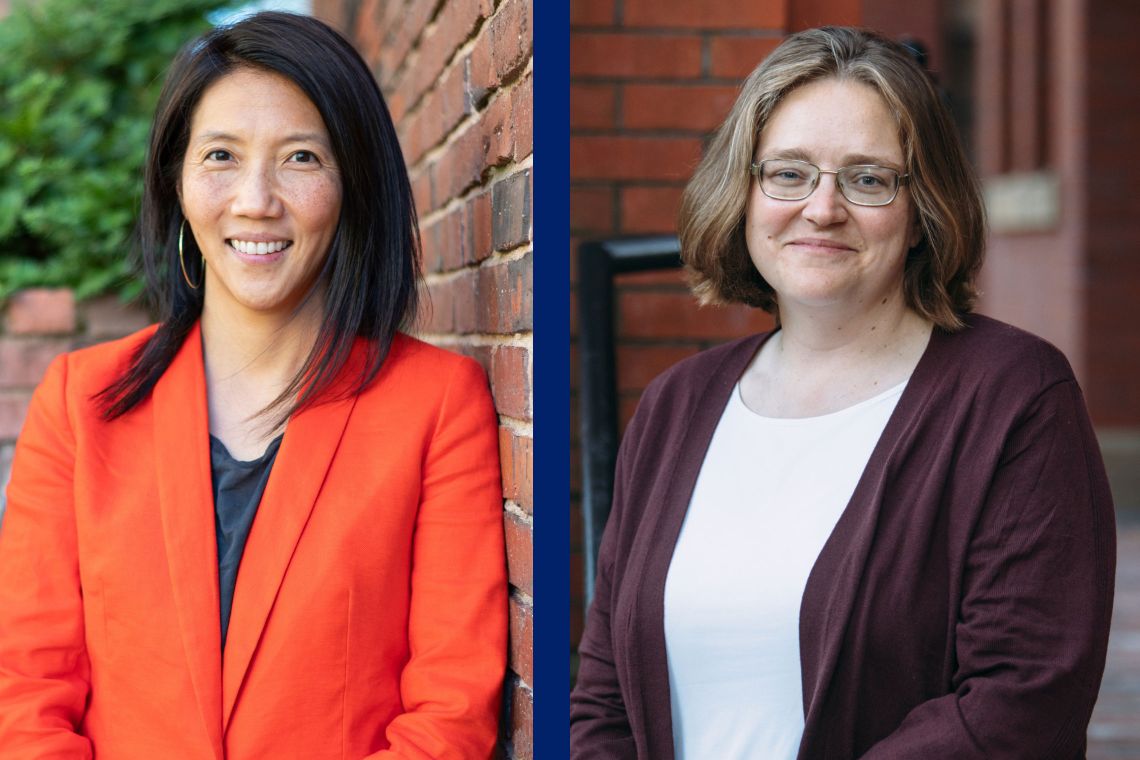
Two Duke alumni were honored this week with the prestigious MacArthur Fellowships, given to people working in a variety of fields who have taken creative and novel approaches to large and complex issues facing the world.
This year there were 25 winners of the so-called “genius” awards, which come with a stipend of $800,000.
This year’s winners included Emily Wang, M.D. ’03, a primary care physician and professor at the Yale School of Medicine; and Melanie Matchett Wood, T ’03, a professor of mathematics at Harvard University.
Emily Wang
Wang was honored for her research on the health-harming effects of incarceration and improving health outcomes for people exiting prison. In her clinical practice and research, Wang partners closely with justice-involved populations to develop effective clinical services and to deepen understanding of the structural barriers to healthcare access that they face.
Director of the SEICHE Center for Health and Justice, Wang “is shining a light on complex health needs and inequities that are largely obscured from public view,” the MacArthur Foundation said. One current SEICHE project considers the ethical concerns and potential solutions for COVID-19 testing and prevention measures in correctional facilities. Another explores community-led strategies for reducing incidences of gun violence.
“I’d like to partner with world health-care organizations,” Wang told the Washington Post. The MacArthur “gives us some more bandwidth and these big opportunities.”
Melanie Matchett Wood
Wood, who as an undergraduate led Duke to one championship and several top five finishes in the prestigious and highly challenging Putnam Mathematical Competition, is a mathematician investigating foundational questions in pure mathematics. She specializes in number theory (the properties and relationships of whole numbers) and algebraic geometry (the study of geometric structures, such as curves and surfaces, that are described using polynomial equations). By combining a breadth of mathematical approaches, she reveals new ways to see fundamental properties of numbers.
“Math can be very specialized,” Wood told The Washington Post. “One of the big parts of my work is bringing together different parts of mathematics to solve problems that we don’t know how to solve.” She said one potential use for her stipend would be to reduce barriers to finding solutions by funding inter-specialty workshops. “I thought this sounded like fun,” she said, laughing.
Wood came to Duke as an A.B. Duke Scholar, and graduated as a Faculty Scholar, the highest student award presented by the university faculty.